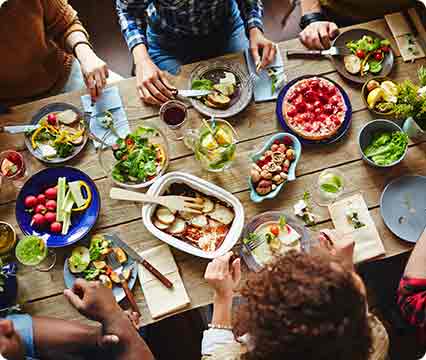Do disadvantageous social contexts influence food choice? Evidence from three laboratory experiments
This 2020 study tries to address the limited evidence on the effect of social contexts on people’s food choice. This experiment tested the extent to which disadvantageous social contexts influence food choice in healthy, non-dieting participants. Three established experimental methods were used to create social contexts such as giving the subjects varying amounts of money in a Dictator game. Another group of participants were included or excluded from a Cyberball game, while 81 individuals took part in a response time ranking task. The sample groups were then provided with a choice of food items ranging in perceived tastiness and healthfulness. Just like a previous study, those with strong dispositional self-control (as indicated by the questionnaire) were more likely to choose healthier foods. Moreover, people who were unfairly treated in the Dictator game, excluded from the Cyberball game, or performed poorly in the task ended up with negative emotions, as predicted. However, there was no evident effect of the social contexts on food choice among the sample in any of the experiments. The results suggest that disadvantageous social contexts have negligible impact on food choice, at least it appears to under laboratory setting.
[NPID: social contexts, social factors, social influence, social, perception, diet, food choice, healthy eating, self-control]
Year: 2020
 Navigation
Navigation






